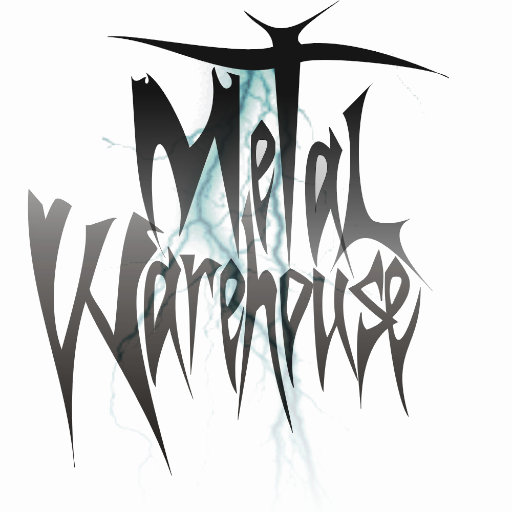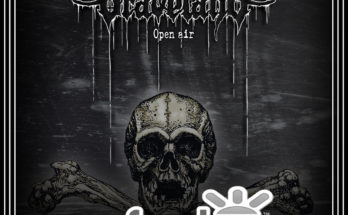JUDAS PRIEST singer Rob Halford spoke to Hellbound.ca about the 25th anniversary of the the band’s subliminal-message trial in Reno, Nevada as well as the 30th anniversary of the PRIEST track “Eat Me Alive” being included in Parents’ Music Resource Center’s (PMRC) “Filthy Fifteen” list of objectionable songs.
Said Halford: “Some days you want to push all that away and not talk about it anymore. And there are other days when you think, hang on, this is very important, an important experience that we all gained knowledge from. Not just us in PRIEST, but everybody.
“When I say you want to push it away, it’s because both were very unpleasant experiences, there was nothing cool about it. It was really tough. We still look back with great sadness to those two young metalheads who lost their lives through the circumstances in which they were living. Those boys loved their metal — it was their life. It was the other things that were going on around them that were creating all the destructive elements.
“And then the PMRC thing was definitely a combination of political agenda and the establishment, especially in America, taking a look at what was going on around them, and feeling so detached, and feeling so alienated by all of this crazy stuff, that they had no impression, no idea of the great things happening in heavy metal, and the joy and pleasure it was bringing to people. So, much like a lot of politicians, when you don’t agree with something, or you don’t understand something — you start attacking it. Because you have no defense, because you don’t have the knowledge, you don’t know what to say, so you have to kind of take it on in a very aggressive manner. At the heart of the PMRC was a simple equation, there are certain things being said — it wasn’t music, this was language! There were certain things being said that they felt needed to be policed. Needed to be guarded against. Which of course… I mean, I’m not an American, but I know what the First Amendment stands for.
“So out of the whole PMRC thing came the stickers on the records for language content. Now, I’m okay with guidance, but I’m certainly against censorship. So if you wanna say, this album has what might be deemed offensive language to you, this is a ‘heads up’ – like when you go to the movies. Anyway, out of all that PMRC thing came this kind of, guarded structure, but it was more than that. I think the end result was kind of a deflated attempt on their part to say, ‘Well, this is what we had in mind in the first place. We wanted to make sure that people had some direction.’ Which is rubbish because at the heart of it, the political establishments at that time hated heavy metal; they hated the music, they hated the volume, they hated the stories, they hated the gory artwork on certain albums. It freaked me out, because this was basically a democratically led charge! It didn’t come from the extreme right wing! It just came from a very strange place from my perspective.
“Having said that, you do what you need to do — you go to court, and you stand up for yourself, and you tell the truth — which is what we did in Reno. And at the same point, when my friend Dee Snider [TWISTED SISTER] went to the senate hearing, he did what any of us would have done, which is told the truth. This is what we are. This is rock and roll. You’re treating us like kids were being treated in the ’50s, like when Elvis was on TV, and they would only film him from the waist down. It was a really, really, really unusual and frustrating set of circumstances to go through — but as ever, rock and roll prevails. You can’t kill rock roll. Who said that? It’s true. So there’s my very long-winded answer to you.”
Back in the mid-’80s, the PMRC (Parents’ Music Resource Center) published a list called “The Filthy Fifteen” which consisted of the top fifteen songs they wanted banned due to objectionable lyrics suggesting violence, sex, drugs, alcohol or the occult. They petitioned for lyrics to be printed on the album jackets and no one was safe — heavy metal acts were right there alongside the pop stars. AC/DC, Madonna, MÖTLEY CRÜE, JUDAS PRIEST, Prince, W.A.S.P., MERCYFUL FATE, Vanity, DEF LEPPARD, Cyndi Lauper and TWISTED SISTER all made “The Filthy Fifteen” list. In November 1985, the RIAA (Recording Industry Association Of America) agreed to put “Parental Advisory: Explicit Lyrics” labels on selected releases at their own discretion.
It was twenty-five years ago that a judge ruled that JUDAS PRIEST was not liable for the deaths of two young men who cited the band’s music as the reason they killed themselves.
Just before Christmas, 1985, 19-year-old James Vance watched his best friend Ray Belknap shoot himself to death with a .12 gauge shotgun in a churchyard outside Reno, Nevada. Then Vance pulled the trigger on himself. He survived but was severely disfigured. Vance later claimed his actions had been influenced by the heavy metal music of JUDAS PRIEST, prompting his family to sue the band.
At the heart of the lawsuit was the claim that JUDAS PRIEST’s “Stained Class” album’s songs contained messages that, when played backwards, said “try suicide” and “let’s be dead.” Lawyers said it was the song “Better By You, Better Than Me” with its subliminal command of “do it, do it, do it” that pushed the two men over the line to end their troubled lives.
Vance told attorneys that he and Belknap were listening to JUDAS PRIEST when “all of a sudden we got a suicide message, and we got tired of life.” In a letter to Belknap’s mother, he later wrote, “I believe that alcohol and heavy-metal music such as JUDAS PRIEST led us to be mesmerized.”
“JUDAS PRIEST and CBS pander this stuff to alienated teenagers,” the Belknaps‘ attorney argued. “The members of the chess club, the math and science majors don’t listen to this stuff. It’s the dropouts, the drug and alcohol abusers. So our argument is you have a duty to be more cautious when you’re dealing with a population susceptible to this stuff.”
Other lawsuits at that time sought damages because of violent lyrics in music, but the JUDAS PRIEST case was one of the first to claim that subliminal messages hidden behind those lyrics caused the deaths of young men.
Source: Blabbermouth


